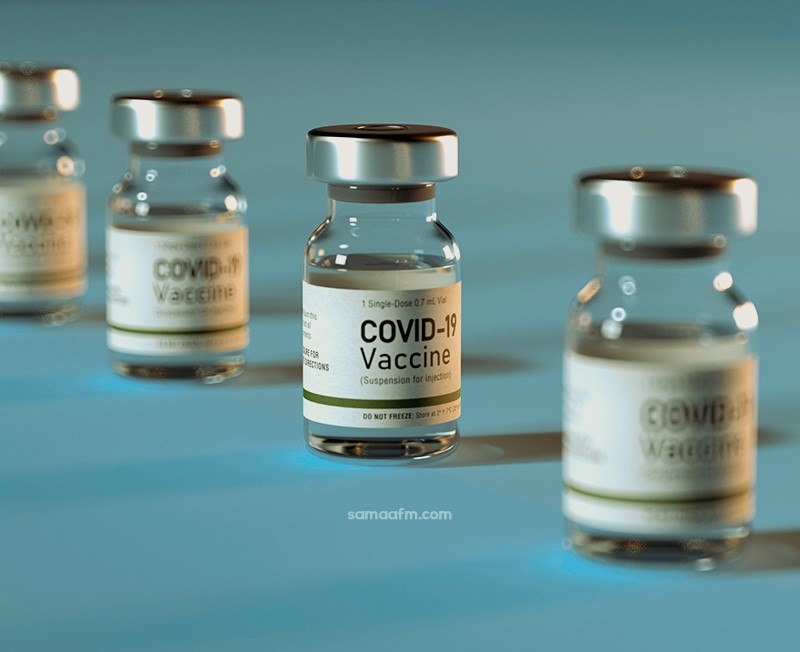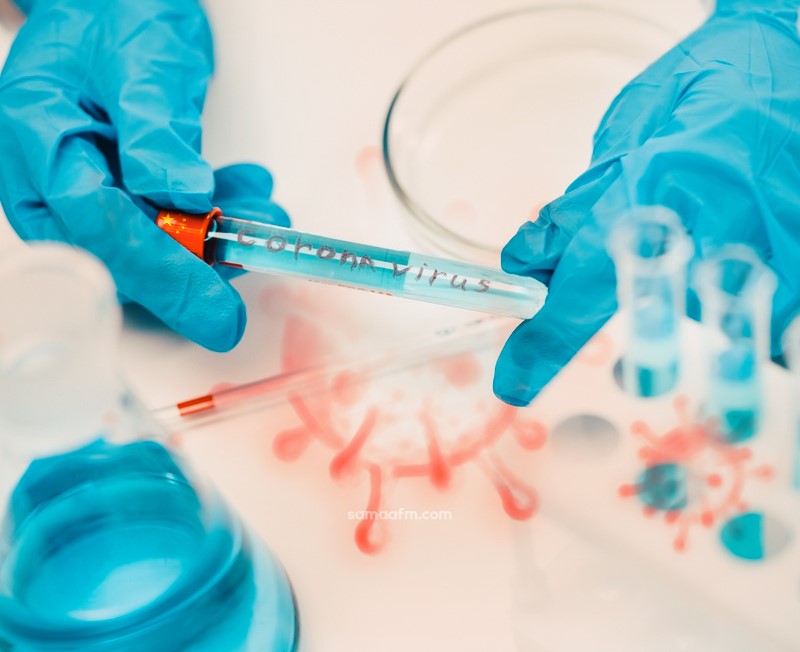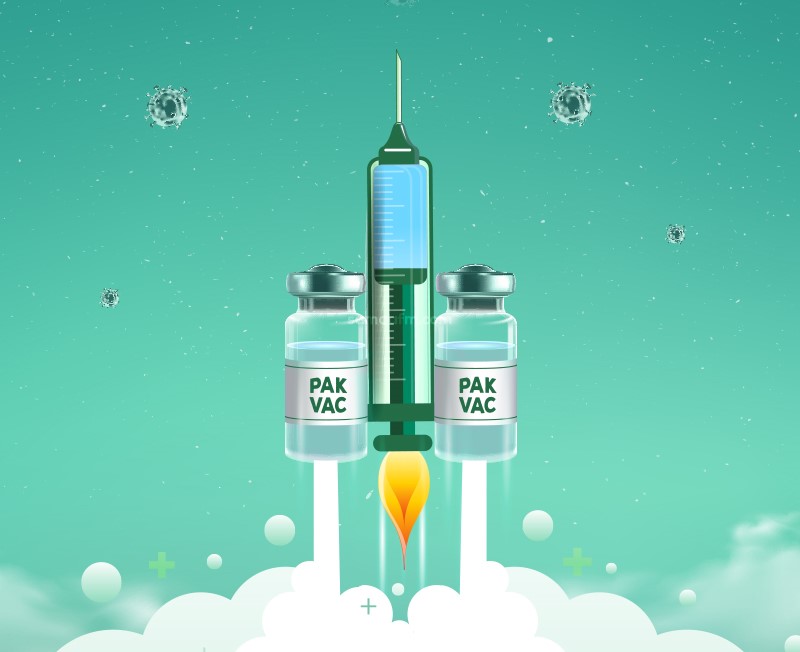
Everything to know about Naegleria Fowleri, the brain-eating amoeba
Karachi reports third death from Naegleria Fowleri
Karachi reports its third death from Naegleria Fowleri, the brain-eating amoeba. A resident of Abul Hassan Isphahani Road, Faizan Rasool, 48 passed away from Naegleria. The patient complained of fever and neck pain, the fever persisted despite taking medicines. As his condition worsened, the family rushed him to Dow Hospital Karachi and then he shifted to a hospital in Gulshan-e-Iqbal, due to ICU bed shortage at Dow. The reports show that the patient got affected by the amoeba while performing ablution at his house.
As this virus is taking over the city, let’s learn more about what is this virus, where does it exist and how dangerous it can be.
Naegleria Fowleri
Naegleria Fowleri is responsible for the disease that causes the Primary Amoebic Meningoencephalitis (PAM). This amoeba is an emerging problem in Karachi; the infection is fatal in 98% of cases. The amoeba lives in warm, fresh water and enters the human brain through the nose, possibly during water activity or ablution for religious purposes. It is commonly found in warm, freshwater lakes, rivers and hot springs. Exposure to the amoeba usually occurs during swimming or other water sports.
A huge number of individuals are exposed to this amoeba that causes naegleria disease every year, except just a few of them get sick by it. Health authorities are still clueless that why a few people get naegleria disease while others don’t.
Symptoms of Naegleria Fowleri
The symptoms of naegleria infection generally begin within two to 15 days of exposure to the amoeba. The first signs and symptoms to appear often include,
- Fever
- Nausea and vomiting
- Changes in smell or taste
- Sudden, severe headache
- Nasal congestion or discharge
And the symptoms worsen up to having stiff neck, sensitivity to light, confusion, loss of balance, seizures and hallucinations. The disease can spread rapidly and usually leads up to instant coma and then death within five days of the start of the symptoms.
Also Read: COVID-19 may have leaked from Wuhan Lab, US report concludes
Factors that increase the risk
Some of the factors that increase the risk of Naegleria are,
Freshwater swimming
Most people become sick have been swimming in freshwater lakes in previous two weeks.
Heat wave
The amoeba lives and survives in fresh water and warm environment and those infections are more likely to occur in southern states with hotter climatic situations.
Age
Children and young adults are at higher risk to be affected.
Nasal washes
Using contaminated water for ablutions or showers can be one of the major reasons of the amoeba to reach the brain directly. People who use water to clean their noses for sinuses are at greater risk. Make sure to use chlorinated or boiled water.
Read More: Asad Umar warns of fourth Covid-19 wave in July
Once you contract the disease, there is no such cure for it. The only thing is a precaution. Which can be helpful to get rid of this horrific disease!

Asad Umar warns of fourth Covid-19 wave in July
Asad Umar warns fourth wave of Covid-19
Islamabad: Head of the National Command and Operation Centre (NCOC) and federal minister Asad Umar on Friday stated that the fourth wave of Covid-19 could possibly emerge in Pakistan in July if precautionary SOPs are not properly implemented.
Asad Umar tweets, “Reviewed the artificial intelligence-based disease modeling analysis today in NCOC,” Umar said in a tweet. Moreover, he stressed, “In the absence of strong SOP enforcement and continued strong vaccination program, the 4th wave could emerge in Pakistan in July. Please adhere to SOPs and vaccinate as soon as possible.”
Recently, Pakistan is experiencing a “temporary” vaccine shortage that made the vaccine process slow and ineffective all over the country. Dr. Faisal Sultan assured of the smooth administration of vaccines after June 20th, 2020. He also said that it is a temporary shortage and the situation is expected to improve after June 20 with the availability of more vaccine doses.
Read More: Vaccine shortage is temporary, says Dr. Faisal Sultan
Pfizer vaccine update
Faisal Sultan also announced that Pakistan signed a deal with Pfizer-BioNTech for providing 13 million dosages of COVID-19 mRNA vaccines. While the specific course of events and a timeline aren’t accessible, it is normal that the first shipment of the Pfizer vaccine would show up in July while the excess would be given before 2021.
Also Read: Pakistan reaches agreement with Pfizer for 13m Covid-19 vaccine doses
On Thursday, the NCOC said that the national count of the active cases fell below 33,000. Earlier this month, the coronavirus positivity rate came down to pre-third wave levels.
Whereas, Pakistan faces a temporary shortage of vaccinations. People should follow SOPs and maintain social distance so that the effects of the virus can reduce to the lowest.
Want to add something to the story? Comment down below.

Pakistan reaches agreement with Pfizer for 13m Covid-19 vaccine doses
13m doses for Pfizer vaccine in Pakistan
Pakistan has signed a deal with Pfizer-BioNTech for providing 13 million dosages of COVID-19 mRNA vaccines, Special Assistant to Prime Minister on Health Dr. Faisal Sultan said. While the specific course of events and a timeline aren’t accessible, it is normal that the first shipment of the Pfizer immunization would show up in July while the excess would be given before 2021.
Last month Pakistan has received 100,000 doses of the mRNA vaccine, under COVAX facility, which is being administered to people who are susceptible to other vaccines.
According to the data issued by the National Command Operation Center (NCOC), almost 13 million doses of COVID-19 vaccines have been administered in the country so far, with about 3.5 million people fully vaccinated.
What Covid-19 vaccines are administered in Pakistan except Pfizer?
Pakistan has primarily used Chinese vaccines – Sinopharm, CanSinoBio, and Sinovac – in its administering drive and earlier this month began allowing those under aged 40 to receive AstraZeneca, of which it has a limited supply meant for people traveling to countries that require it.
Temporary suspension of vaccination centers
On Saturday, Pakistan was facing an alarming shortage of coronavirus vaccines, especially in Sindh. That compelled them to halt the vaccination process altogether. While Punjab closed down many vaccination centers as supply from the Center was halted in the last week. That extreme shortage led the officials to be in contact with Pfizer-BioNTech for the procurement of 13 million doses of Covid-19 mRNA.
Also Read: Vaccine shortage is temporary, says Dr. Faisal Sultan
Revised guidelines for Covid-19 Vaccine
The government has also revised the guidelines for the vaccine. NCOC has announced that the two-dose Sinovac and Sinopharm were initially given with a four-week gap which has now increased to six weeks.
Want to add something to the story? Share it in the comments!

Vaccine shortage is temporary, says Dr. Faisal Sultan
Pakistan is experiencing a “temporary” vaccine shortage, a health representative acknowledged on Wednesday, in the midst of fears among individuals that there might be an extended referral between their first and second doses, making the vaccine process slow and ineffective.
Vaccine shortage is temporary, said Dr. Faisal Sultan
Amidst the ascending concerns of vaccine shortage in major cities of Pakistan, Dr. Faisal Sultan has assured of the smooth administration of vaccines after June 20th 2020.
“This is a temporary shortage and the situation is expected to improve after June 20 with the availability of more vaccine doses” Dr Faisal Sultan, Special Assistant to the Prime Minister on National Health Services, Regulations & Coordination, said on Wednesday.
Also Read: COVID-19 may have leaked from Wuhan Lab, US report concludes
When will the vaccine return?
There are “more than 2,000 vaccination centres in the country” and the number of visitors varies at each clinic, which can lead to “shortage of vaccines at busy vaccine centres” where the demand is high, Dr Sultan said. The health officials were in communication with the provincial and local authorities to fix the vaccine shortage with swift redistribution.
Moreover, the government is likewise chipping away at promising the supply of additional dozes, Faisal Sultan said. He added that the circumstance would improve with the appearance of more dosages of vaccines in June. Furthermore, he said that numerous nations are facing comparable situation because of the worldwide lack.
How many vaccine doses have been administered in Pakistan?
Pakistan launched its vaccination drive on February 2. So far, over 11.7 million doses have been administered. The country has so far received 14.5 million doses of Sinopharm (6.7m doses), Sinovac (5.5m), AstraZeneca (1.24m), CanSino (1m), and Pfizer (0.1m).
Covid current cases in Pakistan
Pakistan has reported 1,038 new COVID-19 cases on Wednesday, taking the number of confirmed cases to 944,065. Another 46 people died in the last 24 hour. The nationwide death toll stands at 21,828, the Ministry of National Health Services said.

COVID-19 may have leaked from Wuhan Lab, US report concludes
Covid-19 may have leaked from Wuhan’s Lab, US reports.
A report on the origins of COVID-19 by a U.S. government national laboratory gave a hypothesis that the virus leak from a Chinese lab in Wuhan is conceivable and merits further examination. The Wall Street Journal said on Monday, referring to individuals acquainted with the classified record.
The study was prepared in May 2020 by the Lawrence Livermore National Laboratory in California and was referred to by the State Department when it conducted an inquiry into the pandemic’s origins during the final months of the Trump administration, the WSJ report said.
US intelligence and possible scenarios
Meanwhile, US intelligence has been focusing on two possible scenarios. The idea that coronavirus came from human contact with an infected animal. Or it has stemmed from a lab leak. They’re yet to come to a conclusion, however.
A still-classified U.S. intelligence report circulated during former President Donald Trump’s administration. It alleged that three researchers at China’s Wuhan Institute of Virology became so ill in November 2019 that they sought hospital care, U.S. government sources have said.
Separately, Mike Ryan, a top World Health Organization official said on Monday the WHO cannot compel China to divulge more data on COVID-19’s origins, while adding it will propose studies needed to take understanding of where the virus emerged to the “next level.”
The Wuhan Institute of Virology itself has also denied the virus stemmed from its lab, and claimed none of its staff have contracted COVID.
Also Read: All you should know about Vietnam UK-Indian Covid strain
Earlier this month, U.S. infectious disease expert Dr. Anthony Fauci called on China to release the medical records of nine people whose ailments might provide vital clues into whether COVID-19 first emerged as the result of a lab-leak.

PakVac vaccine launched in Pakistan against Covid-19
In a significant boost to the public authority’s Covid immunization campaign. Health authorities have finally carried out the Pakistan-made Covid-19 PakVac vaccine on Tuesday, seven days after effectively creating it with the assistance of China’s CanSino Bio.
PakVac Vaccine launch in Pakistan
Along with the PakVac vaccine launch all over Pakistan, a special Pakistan International Airlines (PIA) flight carried 500,000 doses of Sinopharm from the Beijing Capital International Airport to Islamabad, as the authorities arranged to leave on an immense task to immunize the whole adult populace.
‘PakVac’ was launched yesterday during a ceremony, chaired by Asad Umar. Umar also heads the National Command and Operation Center (NCOC), other than Special Assistant to Prime Minister on National Health Services Dr Faisal Sultan and others.
Asad Umar spoke to the ceremony on the homemade vaccine launch
Speaking to the ceremony, Asad Umar said that the day was a significant one for the nation, adding that the whole country was glad for the group that had fostered the vaccination.
He said, “We have witnessed a huge revolution taking place in this country right in front of our eyes in just a matter of months.”
According to Umar, vaccines were in high demand all over the world but the Chinese-produced ones were “the most preferred” in Pakistan. “We need to promote PakVac vaccine as it is produced by us,” he said. “This is a revolution.”
CanSino was the first Chinese vaccine which had clinical trials in Pakistan. The company’s efficacy results showed 65.7% efficacy in preventing symptomatic coronavirus cases and a 90.98% success rate in stopping severe infections.
Read More: Pakistan develops a new homemade anti-Covid vaccine ‘PakVac’
The Health Minister of the country Dr. Faisal Sultan spoke at the ceremony. He said that developing a vaccine from raw materials was not an easy task. Because a lot of hard work was required to maintain its quality. “We found our friend China closest to us in overcoming the Covid-19 challenge.”
You can get your walk-in vaccination process at Expo Centre. By messaging your CNIC number to 1166 to get a registration code and date for the vaccination. Be safe, be protected!

All you should know about Vietnam UK-Indian Covid strain
Vietnam detects a dangerous UK-Indian Covid strain
Vietnam has detected a coronavirus variant that appears to be a combination of the Indian and UK variants and can spread quickly by air, health officials declared. Vietnam’s Health Minister Nguyen Thanh Long described the latest mutation on Saturday as “very dangerous.”
Viruses mutate all the time and most variants are inconsequential, but some can make a virus more contagious. Since Covid-19 was first identified in January 2020, thousands of mutations have been detected.
Vietnam Covid strain havoc
The laboratory results of the variant have shown that the virus can replicate itself quickly. Thus leading to a quick spike in the number of COVID cases in different parts of Vietnam. Within a short period of time. The virus concentration in the throat increases rapidly and spreads strongly to the surrounding environment.
“Vietnam has uncovered a new Covid-19 variant combining characteristics of the two existing variants first found in India and the UK,” Mr Nguyen told a government meeting, according to Reuters news agency.

What vaccine should be useful for Indian Covid strain?
According to experts the variant of coronavirus first identified in India last October – called B.1.617.2 – is more transmissible than the UK/Kent variant – also known as B.1.1.7 –
Research suggests that Pfizer and AstraZeneca shots are highly effective against the Indian variant after two doses. But protection from one dose appears to be reduced.
Who is at more risk?
There is no proof that any transformations of the coronavirus cause considerably more genuine sickness for by far most individuals. The danger stays most elevated for individuals who are older or have critical fundamental ailments. Be that as it may, an infection being more infectious. And similarly, lead to more deaths in an unvaccinated populace.
Also Read: Pakistan starts registering citizens aged 19 and above for Covid-19 vaccination
Vietnam has seen a spike in Covid-19 cases in recent weeks. The country has registered more than 6,700 coronavirus cases since the start of the pandemic. Of those, more than half have been recorded since late April this year.

Pakistan starts registering citizens aged 19 and above for Covid-19 vaccination
Covid-19 vaccination process started for aged 19
Good news for all the youngsters and Pakistan has started registering citizens aged 19 and above for the Covid-19 vaccination from Thursday, 27th May 2020.
Asad Umar announces the news on Twitter
The above Covid-19 vaccination decision was announced by National Command and Operation Centre (NCOC) chief Asad Umar, a day earlier on Twitter. Asad Umar said now, registration will be open for the entire national population which is approved by health experts for the vaccine.
“In today’s NCOC meeting we decided to open up vaccination registration for all 19 years and above. This registration will start tomorrow. So now registration will be open for the entire national population which is approved by health experts for covid vaccination,” he tweeted.
On May 16, Pakistan opened enlistment for people under 30 or more. Umar had clarified that the public authority was opening up registration for more age groups. As Pakistan’s vaccine supply proceeds to improve and the country’s immunization limit gets upgraded step by step.
Pakistan opened registration for the Covid-19 vaccine for people aged between 40 to 49 years across the country on 3rd May. And subsequently, also began walk-in vaccinations for people of the same age group.
Read More: Pakistan develops a new homemade anti-Covid vaccine ‘PakVac’
A computerized system has been dispatched by the national government for the enlistment through which a code. That code is allocated to the individual. And afterward, they can go to an assigned immunization group to get a jab.

Pakistan develops a new homemade anti-Covid vaccine ‘PakVac’
Pakistan produces PakVac vaccination
In recent news, Pakistan fostered another custom home made antibody called ‘PakVac’ with the assistance of China’s Cansino Bio after various testing and assessment. Through this, the nation means to diminish its reliance on the COVID-19 antibody.
At first, the organization began utilizing immunization given by the public authority of China. The inoculation began with cutting edge medical services and then senior residents. As of now, Pakistan has now begun the immunization stage for residents inside the age of 30 or more.
Read More: Pakistan offering Covid-19 vaccine to citizens aged 30 and over
Furthermore, the Special Assistant to Prime Minister on Health Dr. Faisal Sultan commended the NIH Pakistan team on the successful development of the vaccine in a recent tweet.
He further added that the antibody had passed the thorough inward quality confirmation testing as it was paramount. What’s more, an authority from the NHS expressed that because of the concurrence on innovation move, the NIH would have the option to deliver more than 3 million dozes of ‘PakVac’ each month.
Read More: Pakistan to start local production of CanSinoBio vaccine for Covid-19 from May
However, the Chinese inoculation for example CanSino would be accessible for residents before the finish of May and would gradually proceed onward to PakVac. Nausheen Hamid Parliamentary Secretary for NHS also told the house during question hour that the first batch of the CanSino vaccine is currently being manufactured at the NIH.
Shafqat Mahmood tests positive for Covid-19
Federal education minister Shafqat Mahmood said on Tuesday that he had tested positive for the coronavirus, furthermore adding that he was experiencing “mild symptoms”.
In a tweet, the minister said: “I have tested positive for coronavirus. I feel fine with mild symptoms. InshAllah will get well soon.”0

Pakistan offering Covid-19 vaccine to citizens aged 30 and over
Pakistan enters covid-19 vaccine phase for age 30 and over
Pakistan on Sunday opened enrollment for residents that are 30-years of age or more for vaccination against COVID-19. All the immunization places in Islamabad, Khyber Pakhtunkhwa (KP), Balochistan, and Punjab are back to work directing shots to the enrolled residents, wellbeing workers, and the old people of 40 years or more while in Sindh the vaccination communities stayed open in any event, during two Eid holidays.
These centers are working according to the pre-Ramadan schedule from 8 a.m. to 8 p.m. six days a week observing holidays on Friday.
The supply of Covid-19 vaccines
The Covid vaccine supply has improved in the country and as indicated by the National Command and Operation Center (NCOC) Pakistan is near accomplishing the milestone number of 1 million individuals ‘completely’ immunized in the several days. By ‘complete’ inoculation we mean overseeing of two portions, said Director General (DG) Health of Islamabad Dr. Muhammad Safdar.
Dr. Safdar earlier in a tweet asked those in the 30-39 years age group to get registered by sending their Computerized National Identity Card (CNIC) number to 1166 so that they could be vaccinated on their turn.
Read More: WHO reports Indian Covid-19 variant found in 44 countries
Vaccination process at Expo Centre Karachi
While in the rest of the country, registration of the 30-year old persons opened, the Sindh government has started vaccination of 18-year old persons and above. Pakistan’s largest vaccination center ‘Expo Centre’ is administering coronavirus vaccine to around 25,000 to 30,000 persons daily.
In the past 24-hours, some 11,709 persons were added to the number of completely vaccinated persons in Pakistan. Those who had their first dose are about 1.966 million and overall, Pakistan has administered more than 3.836 million doses of the Covid-19 vaccine.
Furthermore, the World Bank (WB) in a bid to help the country fight the pandemic has approved the provision of $153 million (Dh 561.984 million) to support the ongoing national vaccine drive in Pakistan.
New cases reports
The national tally of coronavirus cases after new cases has surged to 877,130 while the death toll stands at 19,543. Pakistan on Sunday reported 2,379 new infections of COVID-19 and 76 deaths in the last twenty-four hours. According to the National Command & Operation Centre (NCOC), 30,402 tests for COVID-19 were conducted during the last twenty-four hours that showed the positivity rate at 7.82 percent.





 (@appcsocialmedia)
(@appcsocialmedia)